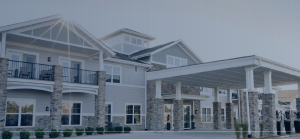Private equity investment in senior housing has gained momentum over the last several years and could reach new heights in 2020 — which might spell trouble for the industry down the road.
Specifically, some private equity funds may be coming to the space for the first time with unrealistic expectations, which could result in a variety of unwelcome outcomes. In one scenario already playing out in some instances, PE owners are pressuring operators to drive short-term results at the expense of long-term viability, in order to generate returns on tight timelines that are standard in other types of PE real estate investment.
For instance, a number of private equity funds are struggling to generate returns in the multifamily space and are eyeing senior housing, according to Mike Gordon, senior managing director and head of transactions for Chicago-based PE firm Harrison Street.
“There’s going to be a bit of a rude awakening when they realize that the three to four year hold period in the multifamily space just doesn’t translate in our sector,” he told Senior Housing News.
On the other hand, the influx of private equity is part of a larger diversification of senior housing capital sources, which has been a key objective pursued for many years by industry leaders, particularly the National Investment Center for Seniors Housing & Care (NIC).
Thanks to this diversification, operating companies now have more opportunities than ever to align with the right capital providers — including private equity — to secure their future, but the pressure is on to make shrewd decisions about who to partner with in an increasingly complex marketplace.
The rise of private equity
Private equity funds began to take senior housing more seriously about 10 years ago, in Gordon’s view. Coming out of the Great Recession, investors were looking for more defensive sectors and noted that senior living had held up well in the downturn, as a needs-based product.
However, public companies such as real estate investment trusts (REITs) dominated the senior housing acquisition market from 2011 to 2015, according to data compiled by the National Investment Center for Seniors Housing & Care (NIC). It was just four years ago that the REITs took a step back, becoming net sellers of senior housing as they sought to reduce leverage and rationalize their portfolios after years of major acquisitions; private equity stepped into the breach.
Private buyers, including but not limited to private equity, have averaged $1.5 billion in volume per quarter since early 2016, according to NIC. This group accounted for 49% of total deal volume in Q3 2019.
By Tim Mullaney





